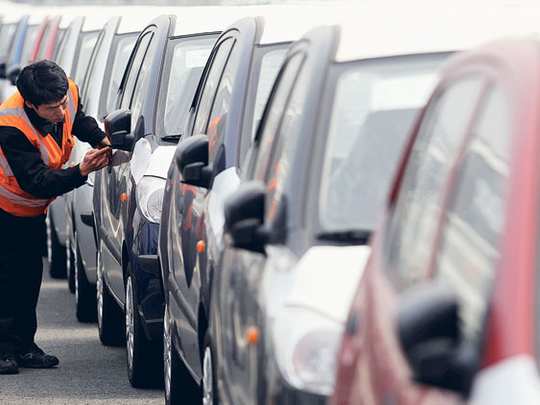
Seoul, South Korea: Trade ministers from China, Japan and South Korea Sunday praised efforts to explore a potential joint free trade deal to boost commerce among three of Asia's biggest economies.
South Korean Trade Minister Kim Jong-hoon, Chinese Commerce Minister Chen Deming and Japanese Economy, Trade and Industry Minister Masayuki Naoshima met in Seoul for one day of talks.
The three countries, which represent 18.6 per cent of the global economy as measured by gross domestic product, have been holding trilateral meetings at the trade minister level since 2002. Japan is Asia's largest economy with China close behind. South Korea ranks No 4. behind India.
South Korea, China and Japan earlier this month in Seoul held the first meeting of a joint committee consisting of representatives from government and business to study a free trade agreement.
Kim, Chen and Naoshima said in a statement that they hoped the study, targeted for completion by 2012, would "contribute to deepening the already mutually beneficial economic interactions among the three countries towards the realisation of economic integration of the region in the long term."
Aggressive
As that language suggests, achieving such an ambitious deal would likely take years. Efforts by South Korea and Japan, for example, to reach a bilateral free trade agreement have gone mostly nowhere largely because of disagreement over how to handle trade in rice.
South Korea has been the most aggressive among the three countries in pursuing bilateral free trade agreements.
Seoul has pacts in force with Chile, Singapore, India, the 10-member Association of Southeast Asian Nations and the European Free Trade Association, which comprises Switzerland, Iceland, Liechtenstein and Norway.
It has signed a deal with the United States and concluded negotiations on one with the European Union, though the agreements remain unratified. The country is also negotiating eight other agreements with Australia, Canada, Mexico, Turkey and others. Yesterday's meeting came as concerns grow over the state of the world economy amid Europe's debt crisis, which has shaken financial markets and raised fears over a possible broader impact on commerce.
Global trade, which plummeted in the wake of the worldwide financial meltdown in late 2008, is expected to rebound in 2010, the World Trade Organisation said in March. Trade volume will grow 9.5 per cent this year after contracting 12.2 per cent in 2009, the biggest decline since Second World War, the WTO said.












